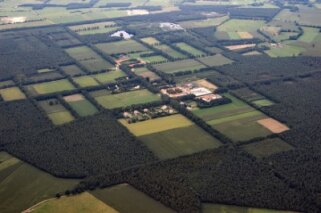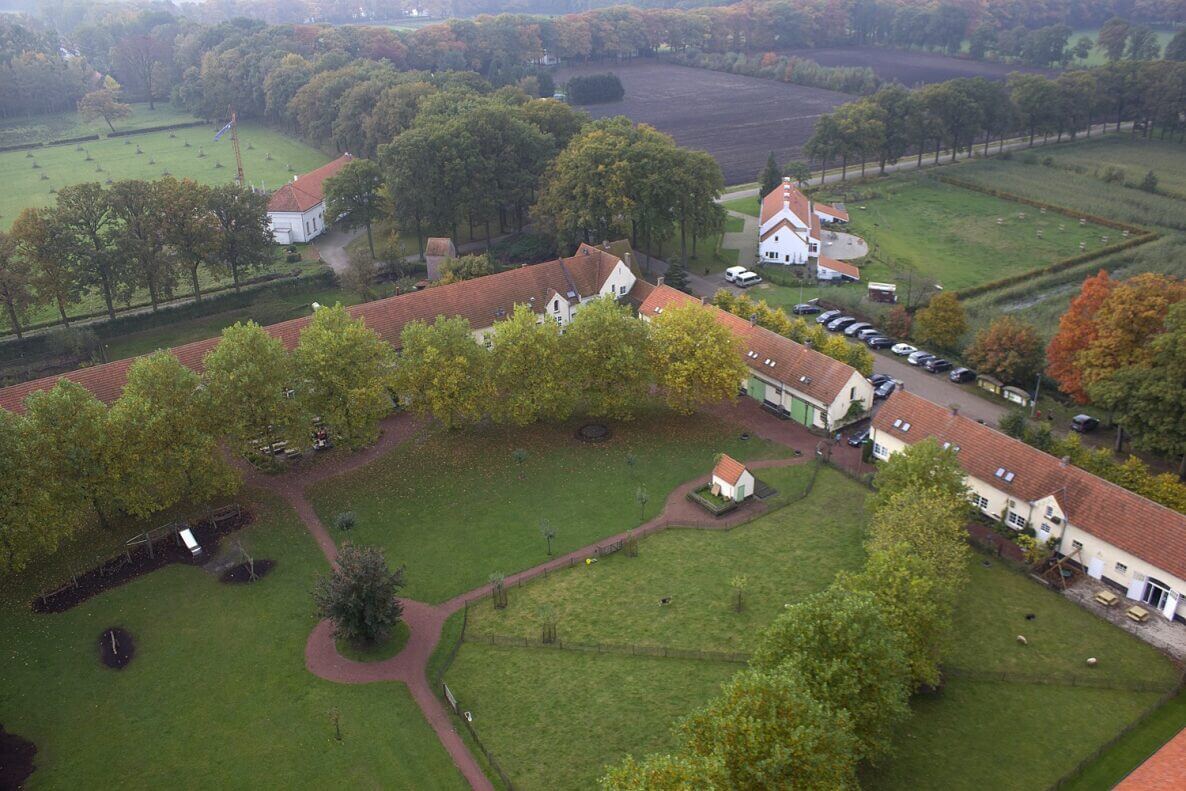This website uses cookies so that we can provide you with the best user experience possible. Cookie information is stored in your browser and performs functions such as recognising you when you return to our website and helping our team to understand which sections of the website you find most interesting and useful.
Colonies de Benevolance



The EHL Site
The Colonies of Benevolence are a transnational project with a total of seven sub-sites in Belgium and the Netherlands. Two of them are located in Belgium and five in the Netherlands. The Colonies were founded in the 19th century as a social experiment to reduce poverty through social employment in new agricultural settlements. At the time, Europe was very impoverished. The colonies were established either as ‘free’ – for families who received the chance to run small farms, or ‘unfree’ – as large collective structures for vagrants and orphans. Their original functioning was suspended. In the Colonies of Benevolence, the public and private sectors invested together in agriculture on infertile and barren lands. At their peak in the mid-19th century, over 11,000 people lived in such Colonies in the Netherlands. In Belgium their number peaked at 6,000 in 1910. The Colonies provided access to education and employment and ensured ‘peace and order’ in the then-society. Nevertheless, the system was based on wrong assumptions about the social engineering and productivity of man and land cultivation.
European dimension
The 175-year history of the Colonies of Benevolence shows Europe’s long journey towards socially marginalised people and their rights as full members of society, now defined in the EU Charter of Fundamental Rights. The Colonies of Benevolence exemplified an innovative and profoundly influential model of pauper relief and settler colonialism during the Enlightenment era, serving as an experimental endeavour in social reform.
The experiment put forth a social engineering model that centred around the concept of ‘productive labour’ with the goal of turning impoverished individuals into hardworking citizens and turning neglected, unproductive areas into fertile land. Alongside employment, they considered education and moral improvement as crucial elements in the effort to transform impoverished individuals into self-sufficient members of society. The Colonies of Benevolence were systematically designed agricultural settlements equipped with modern social amenities, serving as a pioneering example of domestic colony models that garnered significant international recognition. Their influence on various forms of custodial care in Western Europe and beyond endured for more than a century.
The organization
Stichting Kempens Landschap is committed to valuable historical landscapes and open space in the province of Antwerp, Belgium. The reason: when the law on vagrancy was abolished in 1993, the beautiful domains of Wortel and Merksplas Colony, with their typical lane structure and fascinating past, were in danger of being lost. To save this unique heritage, the province of Antwerp and some 40 municipalities set up Stichting Kempens Landschap in 1997. Meanwhile, the Colony of Wortel is on the UNESCO World Heritage List.
Stichting Kempens Landschap purchases domains, values them and opens them to everyone. In doing so, they not only take care of the landscape, but also of the buildings on it. They restore them and give them a new purpose so that future generations can also enjoy them.
Meanwhile, the foundation already owns some 1,400 hectares and operates in 66 municipalities in the province of Antwerp. The domains are very diverse. From open space and forests to estates with stately parks. From religious heritage over industrial to military heritage. But in everything they do, these four pillars are central: nature, agriculture, culture and recreation.
